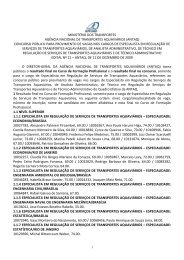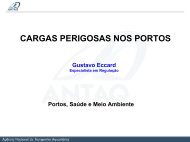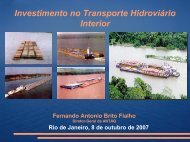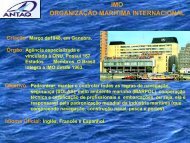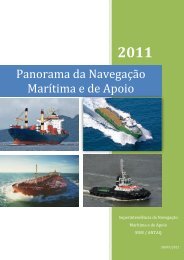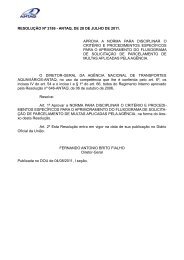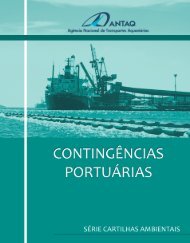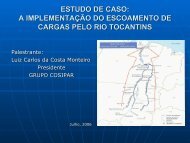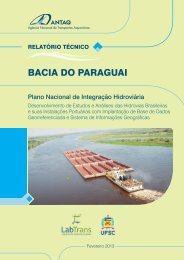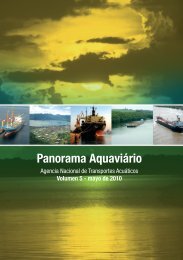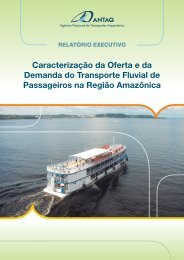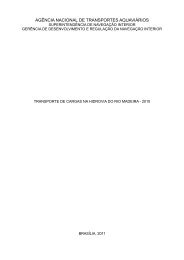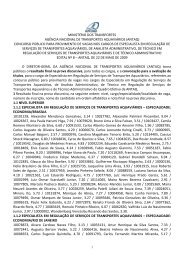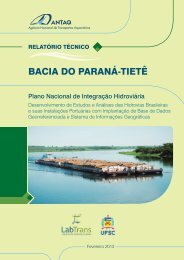Waterway Panorama - Antaq
Waterway Panorama - Antaq
Waterway Panorama - Antaq
You also want an ePaper? Increase the reach of your titles
YUMPU automatically turns print PDFs into web optimized ePapers that Google loves.
Topics of the Local Agenda<br />
Evaluation of the Development and Zoning Plan (PDZ) – it is aimed at the physical planning<br />
of facilities and operations in the use of the port’s land, becoming an instrument of spatial organization<br />
and cargo transit dynamics, with the rational planning of activities for its operation<br />
in response the provisions of Article 4 of Administrative Rule 104 of April 29, 2009, the Special<br />
Secretariat of Ports, which provides for the integration of the variables of environment, safety and<br />
health in the planning of port development and zoning;<br />
Evaluation of the Personal Emergency Plan (PEI) – it sets out specific control measures in the<br />
safety area. Its priority is the reactive emergency action and should be articulated (via the<br />
Agenda) with the organizational view of the PDZ; and<br />
Evaluation of the Best Sanitary Practices in the Management of Solid Waste – it is a set of procedures<br />
designed and implemented to minimize risks in waste generation and provide safe disposal<br />
of waste, aiming at protecting workers and the preserving public health , natural resources<br />
and the environment, with special attention to the requirements of the Specific Plan for the Prevention<br />
of Influenza at Ports.<br />
Referring to a few issues, it is possible to illustrate<br />
the peculiarity of this Agenda, its role in<br />
planning and coordinating activities and being<br />
the organizing center of sectors, stakeholders<br />
and various programs, with the common goal of<br />
the articulation of environmental management,<br />
health and safety actions.<br />
First of all, the Port Environmental Agenda is<br />
an institutional, trans-sector arrangement, which<br />
acts as a tool in the strategic planning of port activities,<br />
aiming at developing a governance structure<br />
targeted at the achievement of environmental<br />
quality, especially reducing risks, not only<br />
caring for accidents and repair thereof, taking<br />
into account the peculiarities of each unit.<br />
The construction of schedules that are agreed<br />
upon requires the organization of democratic<br />
spaces for discussion, which should involve all<br />
relevant stakeholders. The identification of these<br />
stakeholders and their involvement in the process<br />
is paramount to ensuring that the decisions made<br />
will be effective in order to be acknowledged as<br />
legitimate. Its implementation should express a<br />
commitment to local quality targets that are<br />
agreed upon and legally supported, assuming a<br />
specific programming for this level of action.<br />
63



